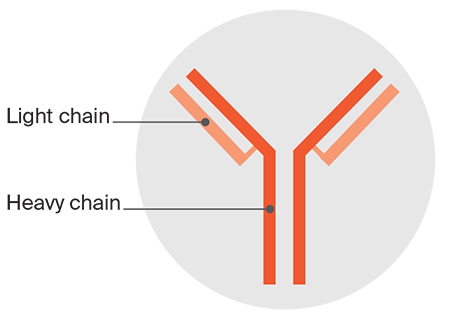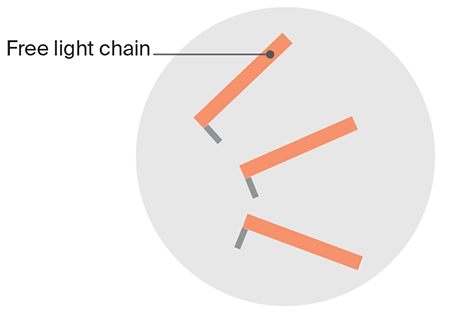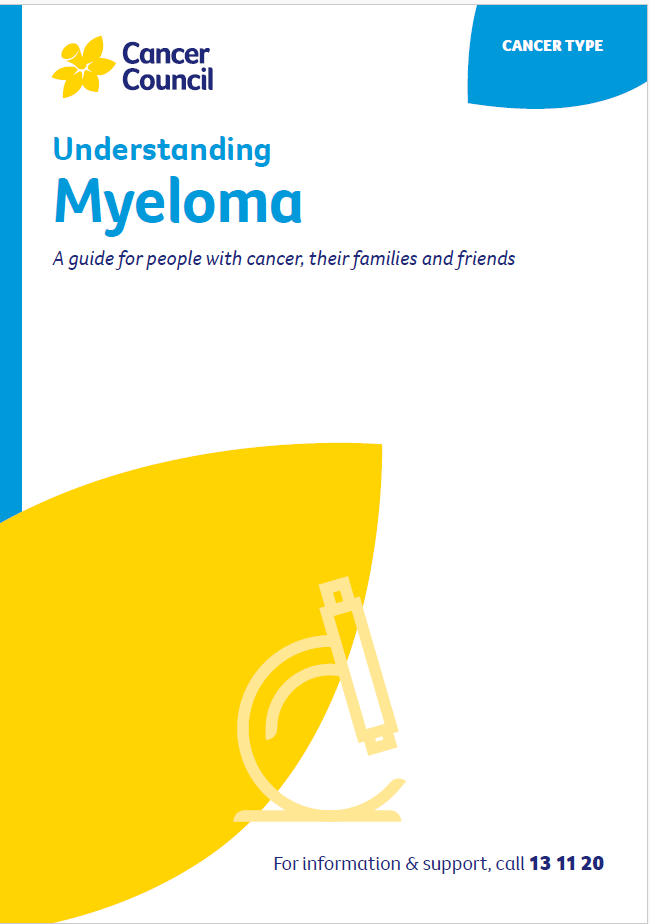Tests for myeloma
Checking for myeloma usually involves a number of tests. The results of these tests help your doctor work out whether you have myeloma or a pre-myeloma condition and then recommend the best treatment plan for you.
Learn more about:
- What is paraprotein?
- Blood tests
- Urine and specialised blood tests
- Bone marrow aspiration and trephine biopsy
- Imaging scans
What is paraprotein?
Myeloma cells produce an antibody known as paraprotein. To make a diagnosis of myeloma, doctors will look for this paraprotein in the blood or urine. Once you have been diagnosed with myeloma, doctors will regularly check your paraprotein levels to monitor the disease.
Intact paraprotein
 | Paraprotein is made up of smaller proteins that are usually linked together to form a pair of long chains (called heavy chains) and a pair of shorter chains (called light chains). Most people with myeloma release complete (intact) paraprotein made up of both heavy and light chains. Intact paraprotein can be detected in a blood test. |
Free light chains
 | About 1 in 5 people with myeloma do not produce intact paraprotein. They produce only the light chain parts. These light chain parts are known as free light chains when detected in a special blood test, and as the Bence Jones protein when found in a urine test. Some people produce both intact paraprotein and free light chains. |
Non-secretory myeloma
Although uncommon, some people with myeloma produce little or no paraprotein. This is called non-secretory myeloma. It makes diagnosis and monitoring myeloma more difficult.
→ READ MORE: Blood tests for myeloma
Podcast: Tests and Cancer
Listen to more of our podcast for people affected by cancer
More resources
Dr Ian Bilmon, Haematologist, Westmead Hospital and The Sydney Adventist Hospital (Clinical review); Martin Boling, Consumer; Catherine Bowley, Specialist Myeloma Nurse, Myeloma Australia; Dr Samuel Dickson, Radiation Oncologist, Calvary Mater Newcastle; Rachelle Frith, Clinical Nurse Consultant, Haematology, Prince of Wales Hospital; Dr Wojt Janowski, Haematologist, Calvary Mater Newcastle; Yvonne King, 13 11 20 Consultant, Cancer Council NSW. We would like to thank all the health professionals, consumers and editorial teams who have worked on current and past editions of this title.
View the Cancer Council NSW editorial policy.
View all publications or call 13 11 20 for free printed copies.

